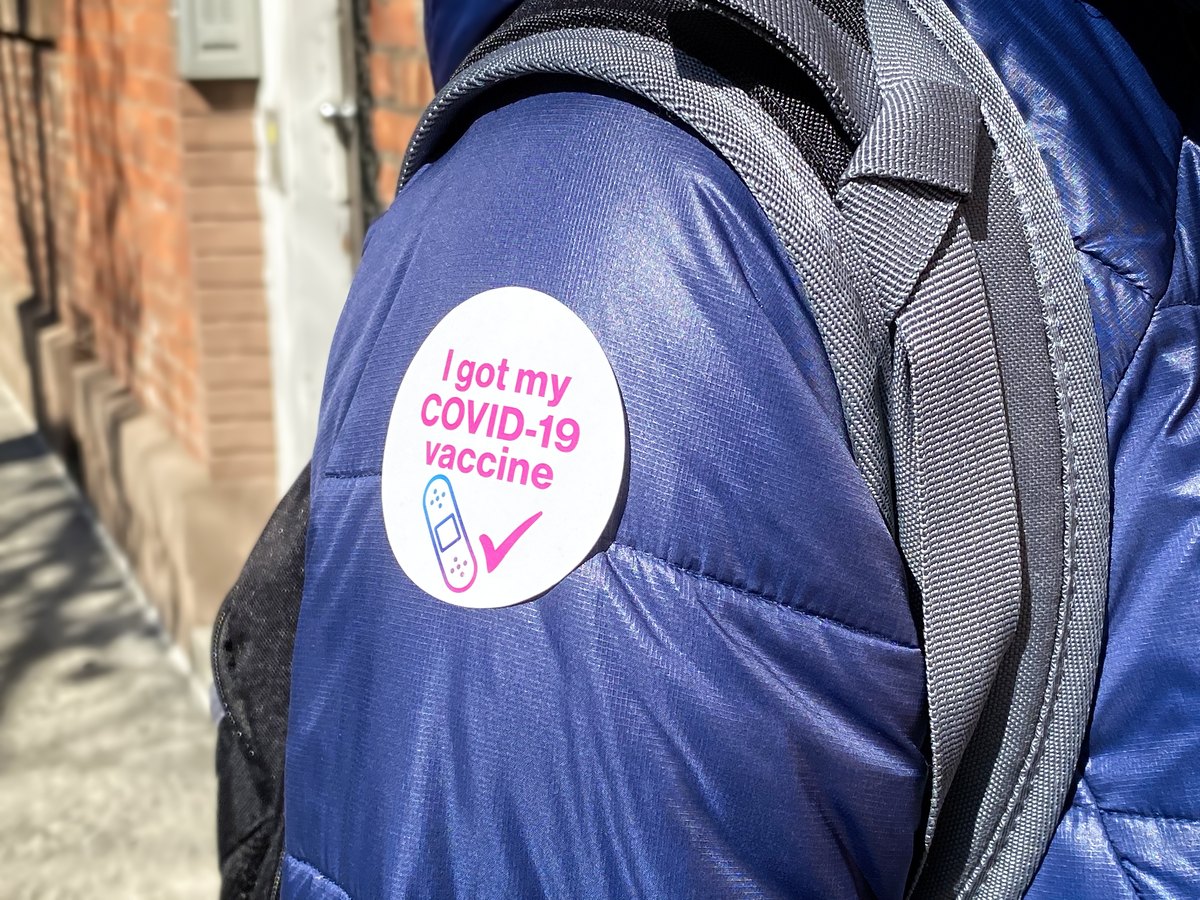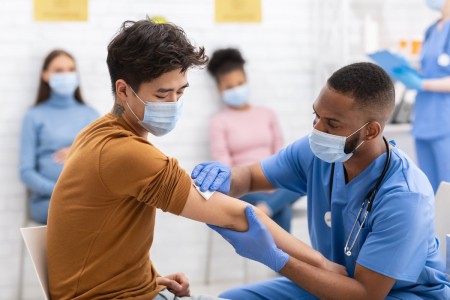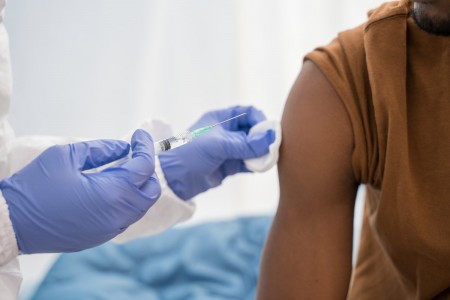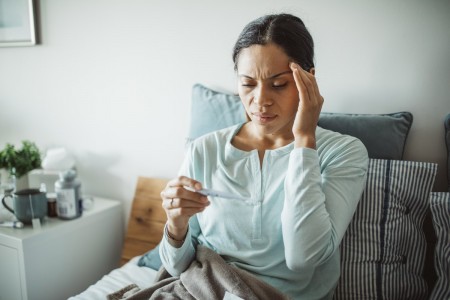
Advertisements
Scoring your first shot of the COVID-19 vaccine feels pretty triumphant. And it can feel like a huge step forward after the pandemic's lockdown year of hell.
Video of the Day
But right after you've gotten the shot — whether it's the first or second of Pfizer or Moderna, or the sole shot required for Johnson & Johnson — you're not "fully vaccinated."
Here's what fully vaccinated means, according to the Centers for Disease Control and Prevention (CDC):
- It's been two weeks after the second dose of thePfizer or Moderna vaccines, both of which require two doses to be fullyeffective.
- It's been two weeks after the single dose ofJohnson & Johnson's vaccine.
If you still have another dose to go or it's not been two weeks since your second, you're not considered fully protected against COVID-19, the CDC says.
Get tips on how to stay healthy, safe and sane during the novel coronavirus pandemic.
"We want to make sure that, with the mRNA vaccines, you are two doses in plus 14 days. That is the time point at which you can feel vaccinated," Keri Althoff, PhD, MPH, associate professor in the department of epidemiology at the Johns Hopkins School of Public Health said during a media briefing about how vaccines might shape daily life.
That's the amount of time needed for your body to appropriately respond to the vaccine, Althoff said. This follows the data from clinical trials of all three vaccines, which shows you need to wait 14 days until after that second dose (or single dose in the case of the Johnson & Johnson vaccine).
During this period, your immune system is in the process of producing antibodies so your body can learn and remember how to protect itself against COVID-19 infection.
"Definitely celebrate when it's your turn to get vaccinated and you receive the vaccine, but then also remember that you have about two weeks left until you can start adjusting your behaviors to reflect what is now recommended for people who are vaccinated. Until that point, be cautious," Althoff said.
And know that until your post-shot 14 days are up, you're still considered in the category of an unvaccinated person.
How Much Protection Do You Have Before You're Fully Vaccinated?
The fortunate news is that after your first dose, you do have a pretty good level of protection. In an April 2021 study from the CDC on nearly 4,000 health care workers, mRNA vaccines (Pfizer and Moderna) were 80 percent effective 14 days after the first dose, which is considered "partial immunization."
Advertisements
At 14 days after the second dose, they were considered to be fully immunized and were 90 percent protected against infection in real-world settings. In clinical trials, the Johnson & Johnson vaccine was 66.3 percent effective in preventing illness, per the CDC.
That data from the CDC is huge by the way, as it suggests that these vaccines not only prevent people from getting sick, but also stop transmission: "…The vaccines can also reduce the risk for infection regardless of COVID-19-associated illness symptom status."
And that's important, because one way for COVID-19 to spread is from people who don't know they're infected and go about their day interacting with other people. Like in the case of asymptomatic cases (when you're infected but have no symptoms) or when you're infected but just haven't developed obvious symptoms quite yet.
Still, even with this 80 percent, the CDC stresses that you still need two doses to receive the full benefit of vaccination. Given that there are COVID variants circulating that are more easily spread from person-to-person, you want all the protection you can get.
What Can You Do Once You're Fully Vaccinated?
If you are fully vaccinated, you can get together indoors with others who are fully vaccinated, too, and/or with unvaccinated people from one other household. But your public life will look very similar to everyone else's until a greater percentage of the public is vaccinated and we get closer to herd immunity.
As of right now, regardless if you've been fully vaccinated or not, you should still wear a mask in public settings, social distance and avoid medium- or large-sized gatherings, per the CDC.
Avoid traveling if possible, and still watch yourself for COVID symptoms. It is still possible to come down with a more mild version of the illness, though these vaccines do protect against serious disease that requires hospitalization or leads to death.
Should You Get a Booster Shot?
Research suggests that the effectiveness of the vaccine decreases over time, according to the CDC. Luckily, getting a booster shot can provide continued protection from the virus (and its variants).
Per the CDC, you can get your booster shot if you're 18 or older and it's been at least six months since your second Pfizer or Moderna vaccine dose. Adults are also eligible to get boosted if they got the Johnson & Johnson vaccine at least two months ago, according to the CDC.
In March 2022, the CDC approved a second booster for people who are immunocompromised and people over the age of 50 who got their initial booster at least four months prior.
The CDC also cleared mixing and matching boosters — in other words, you can, for example, get a Pfizer booster shot even if you initially received the Johnson & Johnson vaccine.
Read more stories to help you navigate the novel coronavirus pandemic:
- Here's Exactly What to Do After You Get Your COVID Vaccine
- The Best Ways to Manage COVID Vaccine Side Effects, According to a Doctor
- How to Know if You Have COVID PTSD, and How to Cope






